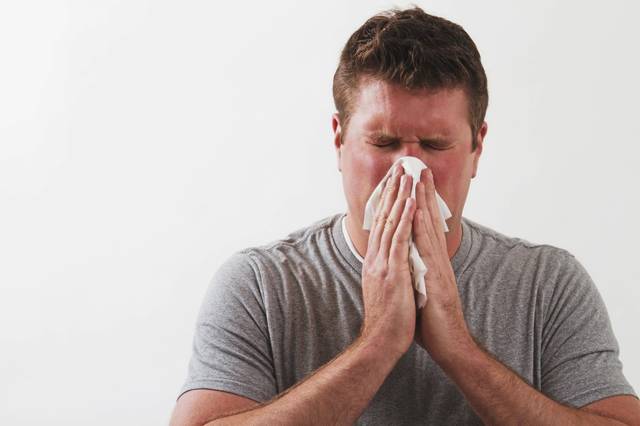https://triblive.com/local/regional/why-are-summer-colds-are-rising-in-western-pennsylvania/
Why are summer colds rising in Western Pennsylvania?

Coughs, sore throats and congestion are common in the fall and winter as cold and flu season takes hold.
But doctors say it’s strange to see what they’re experiencing now — an influx of patients with cold-like symptoms in the middle of summer.
“This time of year, we typically don’t see a lot colds, sore throats, ear infections,” said Dr. Michael Petrosky, a pediatrician with Allegheny Health Network. “Recently, over half my day is spent seeing kids with these common viruses.”
Dr. Karen Lang, Excela Health’s primary care service line leader, concurred she has been seeing more cold symptoms. It struck her as odd also because such sicknesses largely had tapered off during the pandemic.
“It’s interesting because I really haven’t seen sickness — other than covid — for a year-and-a-half,” she said. “Because everyone’s been masked and distanced, we just haven’t been exposing each other.”
Now that masks are coming off and people are coming together, common colds and viruses are here. People gathering together naturally leads to more spread of any type of viral illness, Petrosky said — but the fact that people have been apart so much may be exacerbating viral illnesses.
“Their immune system isn’t quite as prepared,” he said, explaining, if people’s immune systems haven’t been exposed to such viruses in more than a year, they may not be able to fight them off.
Petrosky said he’s seeing this trend mostly in children, most of whom “haven’t been exposed to anything in 15 months.”
“I’m seeing a lot of younger kids,” he said. “There’s 15 months’ worth of kids who were born in a pandemic, who didn’t have the typical exposure to common colds and viruses where their immune systems would have been able to build up some recognition.”
Respiratory syncytial virus (RSV) is a prime example. RSV, which primarily is spread through respiratory droplets when a person coughs or sneezes or through direct contact with a contaminated surface, is the most common cause of bronchiolitis and pneumonia in children under 1 in the United States. Young children and older adults are most at risk from the virus, which circulates primarily during the fall and winter.
But this year, it’s been prevalent in parts of the country since March, spurring the Centers for Disease Control and Prevention to issue a health advisory warning of its increased unseasonal spread.
RSV hasn’t been spreading in “huge amounts” in the Pittsburgh area, but it is present, said Dr. Marian Michaels, who works with UPMC’s Division of Pediatric Infectious Diseases.
“We are seeing some viruses begin to come up — not in huge amounts and not as much as there has been in some other parts of the country such as some southern states — but we have been seeing some,” Michaels said.
Petrosky agreed.
“For this time of year, numbers are definitely higher,” Petrosky said, comparing this summer’s case counts with what would be typical in December or January. “That may make it seem like the case numbers are higher, but I think overall they’re similar to what we typically see. The timing is just different.”
There’s no need for alarm, and people aren’t getting any sicker from these viruses than usual, Michaels said — though people should remember basic health practices such as good hand hygiene and staying home while sick.
Lang said she’s still mostly concerned with ruling out covid-19 in patients who present symptoms consistent with that virus — particularly if they’re not vaccinated. For those who are, she said there’s likely no need to take extra precautions because of the recent uptick in common virus activity.
Doctors say it’s impossible to predict how this trend will play out, but they agree there’s likely to be cold and virus activity.
“My suspicion is that we will see these community viruses a little bit more this summer than we are used to seeing, that some of the other winter viruses may also be circulating,” Michaels said. “I am particularly concerned that we will have a more robust influenza season and that perhaps it will start early.”
After Pennsylvania saw its mildest flu season on record in the past year, Michaels urged people to get the flu vaccine as soon as it becomes available to combat a potentially bad flu season. She also said it’s important for parents to make sure children are up-to-date on immunizations before they return to classrooms in the fall, for the first time since the pandemic struck for some students.
Petrosky said he’s preparing for a potential surge in viruses and other illnesses in the fall.
“In the pediatric world, we have been concerned about fall more than anything else — that’s usually when we see a lot of sickness,” he said. “I don’t know if the exposures going on now might help lessen that chance as people are getting exposed to it now.”
Copyright ©2026— Trib Total Media, LLC (TribLIVE.com)
